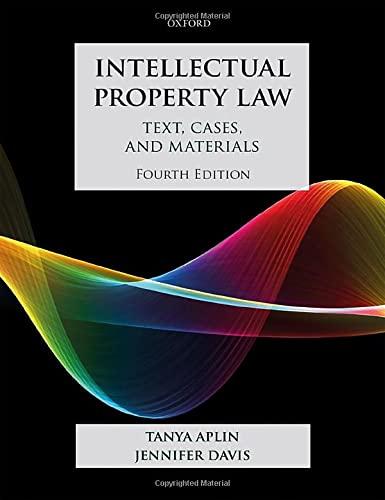Question 7 1 point possible (graded) 7. Synergy Inc. makes televisions, which it sells to consumers through a network of independent distributors. Matthew owns one such distributorship in Storyville. Ames. The relationship between Synergy and Matthew is governed by an elaborate contractual agreement, which among other terms provides price schedules for Matthew's wholesale purchases, sales incentives for dealing lots of Synergy televisions, and a term that allows either party to cancel the agreement without cause by giving ten days' notice to the other party. For thirty years, Matthew sells Synergy's televisions with great success, generating large prots for Synergy and providing a nice lifestyle for Matthew and his family in Storyville. One day, though, the son of Synergy's CEO decides that he wants to sell Synergy televisions through his new distributorship in Clarksville, Ames (a mere 5 miles from Storyville). Attempting to drive Matthew out of business, Synergy notifies him that it is cancelling the thirty-year old agreement, effective twenty days later. Matthew is heartbroken, seeing his entire livelihood crumble before him. Eventually, he calms his emotions and speaks to Vince, Matthew's high school friend and longtime lawyer. Vince, knowing that Matthew's life has been built on the basis of selling Synergy televisions, tells Matthew that he can use contract law to prevent Synergy from pulling the deal out from under him. Is Vince correct? (Select 1) 0 Yes, because there is a long-established course of dealing (over 30 years) between the parties. 0 Yes, because the contract term allowing cancellation of the agreement is unconscionable. O No, because any argument that Vince might make about acting in good faith or the course of dealing between the parties is defeated by the contract term on cancellation. O No, because changed circumstances frustrated the contract's objective. Question 8 1 point possible (graded) 8. Ralph and Henry have a valid contract for Ralph to build Henry's new house. When negotiating the deal, Ralph estimated that his costs for the project would be $150,000. which would easily be covered by the contract price of $200,000. When Ralph was only partially nished with thejob, Henry became angry with him and red Ralph, making him leave thejob site. To that point, Ralph had expended $75,000 in construction and labor costs. Ralph is upset about being fired and needs the money the job would have brought him. Based on the doctrines you have learned in this course, what is his best option? (Select 1) 0 He should seek specic performance of the contract, getting a court to force Henry to allow Ralph to complete the job. 0 He should sue Henry for damages, which would total up to $125,000. Contract law provides no solutions for Ralphhe should seek other construction jobs instead to cover his lost costs. 0 He should sue Henry for damages, which would total up to $75,000








